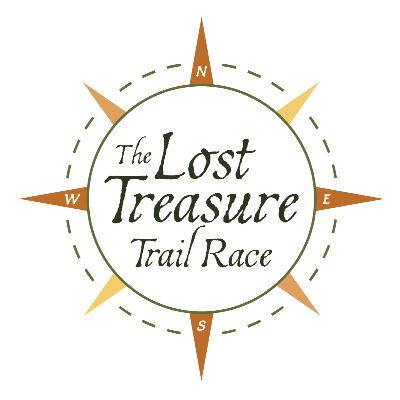Annual Alfie Shrubb Race (8k & 5K): June 5, 2011 (Bowmanville, ON)
www.alfieshrubb.ca
After posting Talent is Overrated a common sentiment was offered from several observers. There must be a case for natural talent, where genetics have played a critical role in the success of the athlete. So here is the flipside, the case of Alfie Shrubb, the great runner of the early 1900’s, a man who seemingly required little “deliberate practice” to achieve world class results.
It is my pleasure to introduce author Rob Hadgraft who gives us a special article on Alfie Shrubb, including his discovery by the running world and the medical validation of his superior genetics. Mr. Hadgraft has spent many years researching and rebuilding the nearly lost history of one of the world’s best distance runners of his time.
I offered to Rob that Alfie, long before that evening he was famously discovered chasing a fire tender, had already been training and training well. I wanted to confirm if the theories of “Talent is Overrated” appled to Shrubb too. And this unexpected response followed.
Enjoy!
——————————————————————————–
By Rob Hadgraft
Different strokes for different folks. Arthur Newton (1883-1959), the British founding father of modern ultra-running, openly admitted he possessed little natural talent, but had made himself a champion thanks to hard work, an analytical brain and bucketfuls of grim determination. Fellow countryman Alf Shrubb (1879-1964), on the other hand, was a quite different kettle of fish: a naïve runner blessed with natural gifts.
Newton benefitted from the fact that few other men during his golden era (1920-1935) had the time or inclination to train or race at distances of 50 miles or more. But single-minded Newton worked out how to keep his legs moving for hours on end, and spent all his waking hours developing his ideas.
However, the hyperactive Shrubb began winning races almost effortlessly from the moment he was recruited by his local running club – Horsham Blue Star Harriers – long before beginning doing any intense or formal training, and long before gaining the experience and knowledge normally required.
When writing Shrubb’s biography in 2003, I investigated the hoary old tale about his talent being ‘spotted’ when he chased and easily kept pace with a fire tender as it hurtled down country lanes to a midnight haystack fire. I found the story was not apocryphal. It happened. And what is more, the experienced and well-trained captain of Horsham Blue Star Harriers (Fred Spencer) had been running alongside too and had to struggle to stay there.
Local celebrity Spencer couldn’t believe what he saw next to him: An unknown young building worker wearing hob-nailed working boots and running like the wind. Shrubb’s only ‘training’ prior to that day had been boyhood excursions on foot accompanying local fox-hunters, and the occasional jog to work. Training himself to be faster, or to win races, had never entered his head until Spencer frog-marched him to the local pub that served as Blue Star’s headquarters.
The hard work for Shrubb came later, and for more than ten years (1901-1912) it helped maintain his position as the finest runner of his generation. The number of world best times he achieved ran into double figures; some of them remaining in the record books nearly 50 years. His training workload would become heavy (for that era), but he was never the sort of mileage freak who emerged later in the shape of Jim Peters and David Bedford et al. Shrubb was always nervous before races and admitted to ‘running scared’ early on during events, thus explaining his remarkable habit of flying off at the gun and opening up big early leads, regardless of the distance or nature of the event. His neat, tidy frame and efficient low-striding style disguised remarkable leg speed. He could turn this speed on and off at will, and often surged spectacularly mid-race, to the dismay of opponents who thought they almost had him pegged.
In the early 1960s, with Shrubb having reached the age of 80 and long since given up running, medical researchers in Canada used him as a guinea pig when investigating how the heart and respiratory system of top athletes coped in old age. Led by world-renowned heart specialist Dr Paul Dudley-White, the team had been told how Shrubb used to finish gruelling races in absolutely no distress (unlike contemporaries who often collapsed or fainted, or both) and apparently breathing normally. Dudley-White may have been the so-called ‘father of modern cardiology’, but he later confessed he’d never seen anything quite like Alf Shrubb! The old man had a large robust heart and lung capacity that bordered on the incredible.
No doubt Shrubb’s running workload enhanced and maintained these assets in early adulthood, but it was also crystal clear they were natural gifts, without which he would have been just another also-ran.
——————————————————————————–
Available from www.desertislandbooks.com
‘The Little Wonder: The Untold Story of World Champion Runner Alfred Shrubb’ by ROB HADGRAFT (published by Desert Island Books, 2004) ISBN: 9781-874287-813.
‘Tea With Mr Newton: 100,000 Miles, The Longest Protest March in History’ by ROB HADGRAFT (published by Desert Island Books, 2010) ISBN: 9781-905328-857.





















Good Day:
Yes Alf was quite the athlete. I am happy to connect with Rob, the author of this response by Daniel question. Alf set all his record in England, but moved to Canada and settled in Bowmanville, Alf lived in Bowmanville for over 44 year. This year we are glad that we will be honoring Alf Shrubb with the 9th Annual Alfie Shrubb Classic, he is very deserving of having a race with his name attached. I hope word spreads and we will have many signing up. Put June 5th on your race calendar.
If you want to find out more about Alfie Shrubb, sign up for the monthly newsletter, Rob Hadgraft writes what Alf did over 100 years ago. Check out http://www.alfieshrubb.ca
Thanks
Al